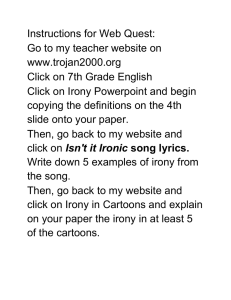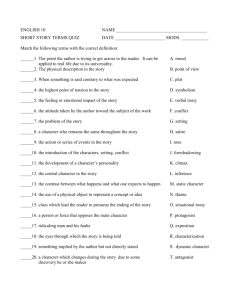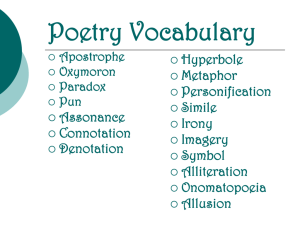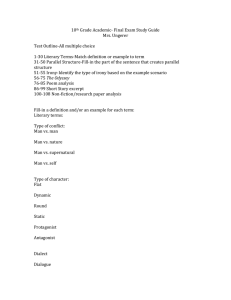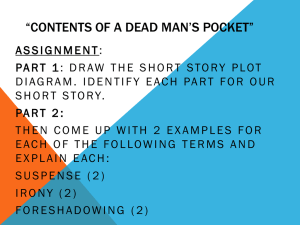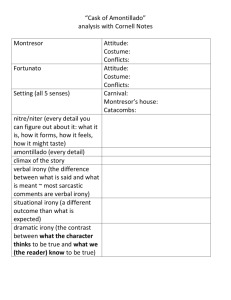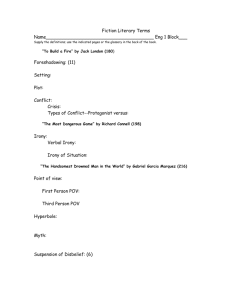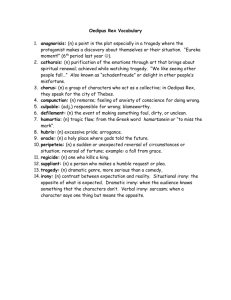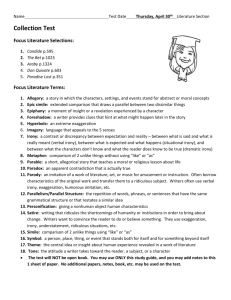ap flashcards: literary devices
advertisement
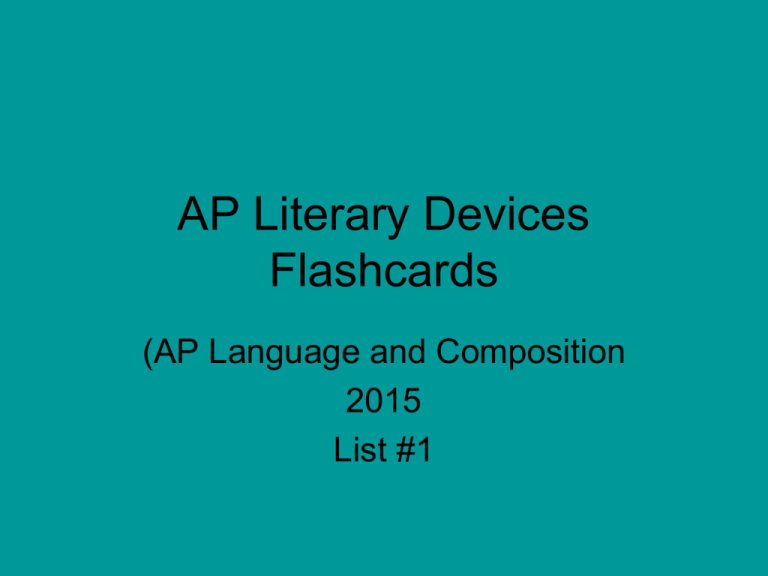
AP Literary Devices Flashcards (AP Language and Composition 2015 List #1 allegory the device of using character and/or story elements symbolically to create a story that has both a literal AND deeper, symbolic meaning allusion a direct or indirect reference to something that is assumed to be commonly known (event, book, myth, place, work of art) analogy a similarity between two different things or the relationship between them aphorism a terse statement of known authorship which expresses a general truth or moral principle apostrophe a figure of speech that directly addresses an absent or imaginary person or personified abstraction (love, liberty, etc.) archetypes an original model or type after which other similar things are patterned; a prototype cliché a trite, overused expression which is lifeless; it has lost any real meaning because it is used so much colloquial/colloquialism the use of slang or informalities in speech or writing conceit a fanciful expression, usually in the form of an extended metaphor or surprising analogy between unlike objects euphemism a more agreeable or less offensive substitute for a generally unpleasant word or concept hyperbole a figure of speech using deliberate exaggeration irony a contrast between what is stated explicitly (outright) and what is really meant verbal irony when an author says one thing and means something else dramatic irony when an audience perceives something that a character in literature does not know situational irony (irony of situation) a discrepancy between the expected result and actual results malapropism a habit of using polysyllabic words incorrectly metonymy a figure of speech in which the name of one object is substituted for that of another closely associated with it onomatopoeia a figure of speech in which natural sounds are imitated in the sounds of words oxymoron a figure of speech wherein the author groups apparently contradictory terms to suggest a paradox paradox a statement that appears to be selfcontradictory or opposed to common sense but upon closer inspection contains some degree of truth or validity parody a work that closely imitates the style or content of another with the specific aim of comic effect and/or ridicule pun a figure of speech which involves a play upon the double meaning of words satire a work that targets human vices and follies or social institutions and conventions for reform or ridicule symbol/symbolism anything that represents something else (NOT a comparison; usually something that is concrete/tangible that represents something more abstract) synecdoche a figure of speech in which the part stands for the whole synesthesia the mixing of sensations; the concurrent appeal to more than one sense tone the author’s attitude toward his or her material, the audience, or both understatement the ironic minimalizing of fact; presenting something as less significant than it really is
